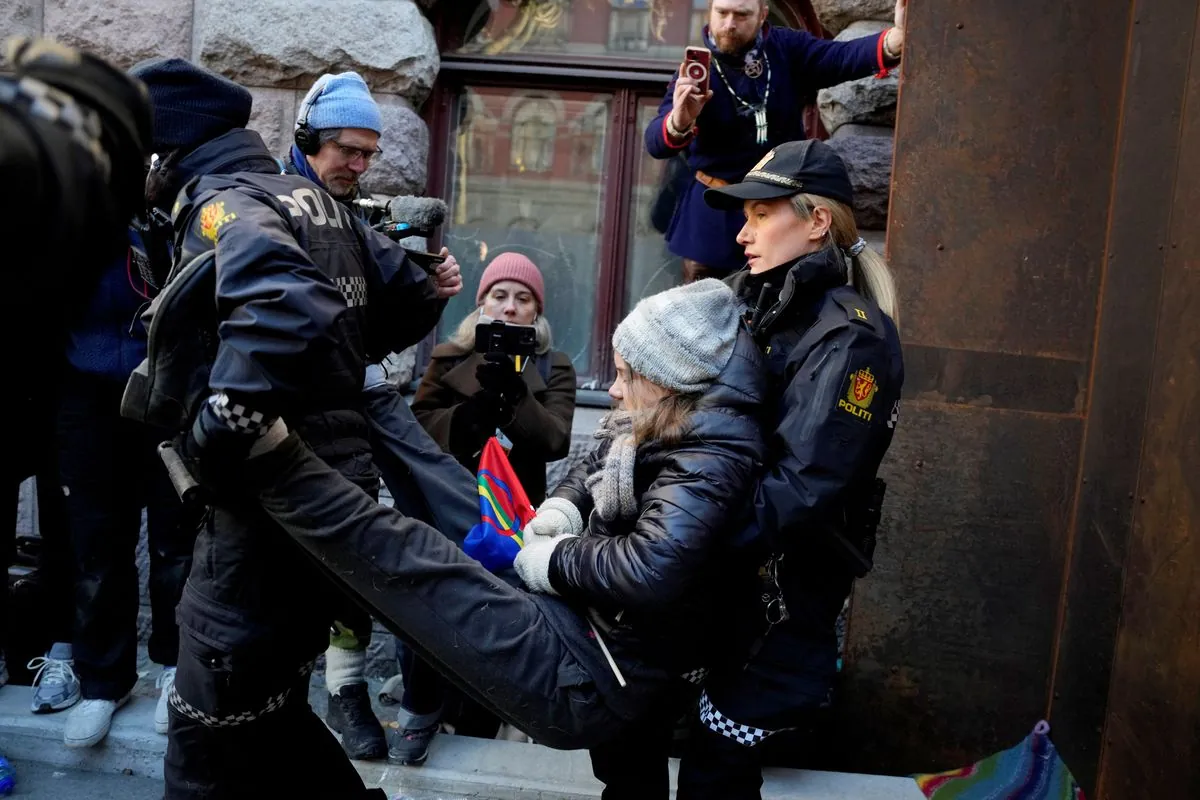Norway Arrests Man Linked to Cameroon Conflict Amid War Crime Probe
Norwegian authorities detain individual suspected of inciting crimes against humanity in Cameroon's ongoing separatist conflict. The arrest highlights Norway's commitment to international justice.

In a significant development, Norwegian law enforcement has apprehended an individual suspected of inciting crimes against humanity in connection with the ongoing conflict in Cameroon. The arrest, which took place on September 25, 2024, underscores Norway's commitment to international justice and its role in combating impunity for serious crimes.
Cho Lucas Yabah, a man in his 50s, was taken into custody by Norwegian police on suspicion of playing a crucial role in the armed conflict that has plagued Cameroon since 2017. The authorities have sought permission from an Oslo court to keep Yabah in preventive custody while the investigation continues.
The conflict in Cameroon, which has now been ongoing for seven years, stems from tensions between the country's French-speaking majority and English-speaking minority regions. Cameroon, a nation of approximately 28 million people spanning 475,442 square kilometers, has a complex linguistic and cultural landscape with over 250 ethnic groups and languages. The country's dual linguistic heritage is a result of its colonial past, having been divided into French and British territories before gaining independence in 1960.
The separatist movement, centered in the Northwest and Southwest regions known collectively as Ambazonia, declared independence on October 1, 2017. Since then, the conflict has resulted in the deaths of more than 6,000 people and the displacement of over 700,000 individuals. Human rights organizations, including Amnesty International, have documented numerous abuses committed by government forces, militias, and separatists, including killings, rapes, torture, and the destruction of property.
Yabah's legal representative, Morten Engesbak, stated that his client intends to plead not guilty to the accusations. Engesbak emphasized that Yabah believes the case is based on a misunderstanding of both the situation in Cameroon and his role in it. The suspect is reportedly cooperating with the investigation.
Norwegian police investigator Anette Berger highlighted the importance of the arrest, stating:
"Norway has an international responsibility to ensure that we are not a free haven for people who commit war crimes or crimes against humanity."
This statement reflects Norway's longstanding commitment to international peace and justice, exemplified by its involvement in various peace processes, including the Oslo Accords. The country's legal system, based on civil law with influences from customary law, has been actively engaged in international criminal justice efforts.
The arrest of Yabah comes at a time when the international community continues to call for dialogue to resolve the crisis in Cameroon. The conflict has had far-reaching consequences, significantly impacting education with the closure of many schools and disrupting the country's economy, which is primarily based on agriculture and oil exports.
As the investigation unfolds, it serves as a reminder of the global nature of justice and the responsibility of nations to address serious international crimes. Norway's actions in this case demonstrate its commitment to preventing the country from becoming a safe haven for those accused of war crimes or crimes against humanity, regardless of where these crimes may have occurred.
The case against Cho Lucas Yabah will likely draw attention to the ongoing conflict in Cameroon and may potentially contribute to international efforts to address the crisis in the country often referred to as "Africa in miniature" due to its geographical and cultural diversity. As the legal proceedings continue, the world will be watching to see how this case unfolds and what implications it may have for international justice and the situation in Cameroon.


































